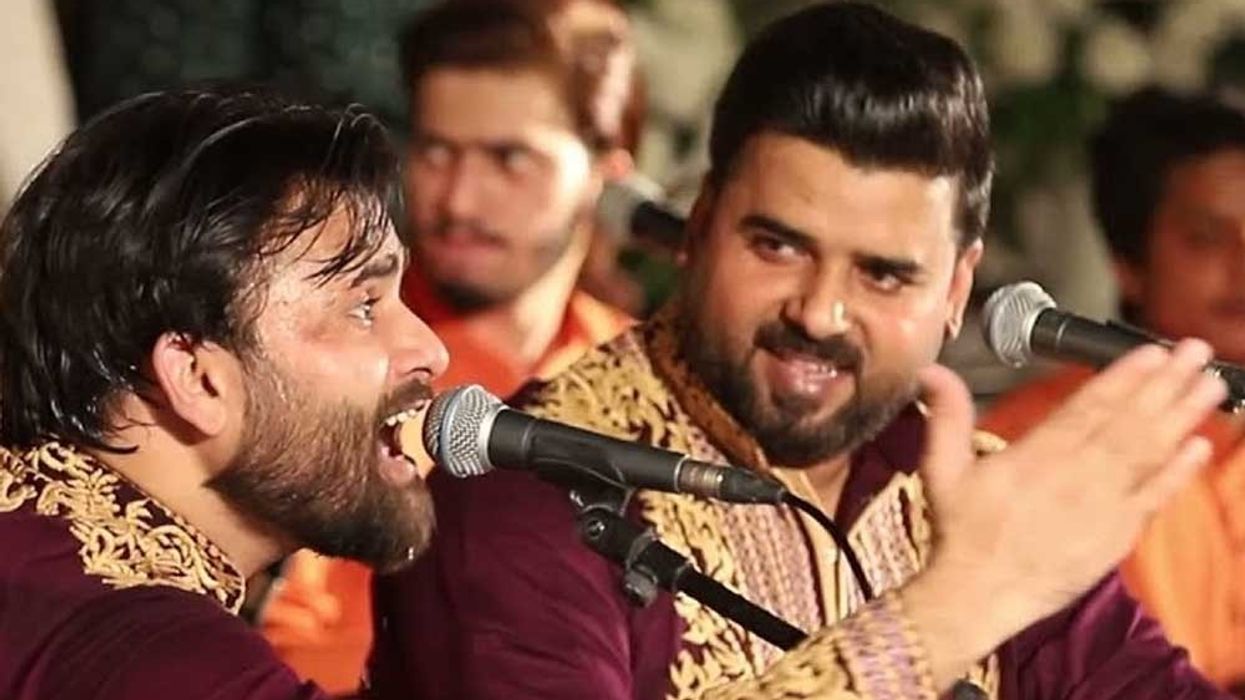Highlights:
- The Shahbaz Fayyaz Qawwal Group return to the UK with a nationwide tour after viral success online.
- The ensemble of brothers blend centuries-old qawwali traditions with fresh improvisations that connect with young audiences.
- From Pakistan to the USA and UK, their performances have won acclaim for their electrifying energy and spiritual depth.
- Fans can expect new instruments, reimagined classics, and the same message of love and harmony at this year’s shows.
From viral sensation to global stages
When a performance goes viral, it can change an artist’s career overnight. For the Shahbaz Fayyaz Qawwal Group, their stirring renditions of Bhar Do Jholi and B Kafara propelled them from local fame in Pakistan to global recognition, amassing millions of views across platforms. What set them apart was not just the power of their voices, but the way their music resonated with younger listeners who were hearing qawwali with fresh ears.
That viral momentum soon carried them beyond borders, leading to major performances in the United States and the UK. “It wasn’t just one track,” the group explained. “We revived older gems like Kali Kali Zulfon and Dil Pukare Aaja in our own style, and those went viral again, showing that qawwali still speaks across generations.”
Heritage, family and style
The Shahbaz Fayyaz Qawwal Group’s uniqueness lies in their roots. Composed of seven brothers and joined by fellow musicians from respected musical families, the ensemble was trained by their late father, himself a master of the art form. On stage, as many as 15 to 20 performers create a sound that is both deeply traditional and daringly modern.
Their shows are alive with improvisation. In the middle of a devotional track, harmonium player Shahbaz might suddenly weave in a melody from a contemporary Bollywood hit, while lead vocalist Fayyaz channels his energy into unrestrained movements and audience interaction. “When different styles meet, something new emerges,” they said. “That’s what keeps the music vibrant.”
UK audiences and the international journey
Having performed across the USA, the Middle East and Europe, the group describe UK audiences as particularly electric. “Each time we perform here, the atmosphere is charged. People don’t just listen – they become part of the performance,” they said.
Their repertoire often draws requests from fans who expect to hear viral favourites alongside traditional classics. “Sometimes, if organisers don’t allow us to perform songs like B Kafara or Dil Pukare Aaja, the audience won’t let the show continue. That’s the level of passion here,” they recalled with a laugh.
Keeping qawwali alive for new generations
While the roots of qawwali stretch back centuries, the group see their role as carrying the tradition into the present. By fusing tabla, harmonium and handclaps with newer instruments and arrangements, they appeal to younger listeners without losing the music’s essence.
“We want every audience to feel peace, harmony and love when they leave our concerts,” they said. “An artist should never belong to just one group of people – music is for everyone.”
What fans can expect this tour
This year’s UK tour promises new surprises. The group have introduced fresh orchestral elements and added instruments to expand their live sound. Fans can expect a mix of beloved classics, spontaneous improvisations, and the chance to hear qawwali reimagined for today’s world.
For Shahbaz Fayyaz Qawwal Group, the mission remains unchanged: to honour their heritage, embrace new audiences, and spread the universal message at the heart of their art. As they put it: “We look forward to growing together with our fans. Let’s celebrate qawwali as a tradition that belongs to everyone.”





